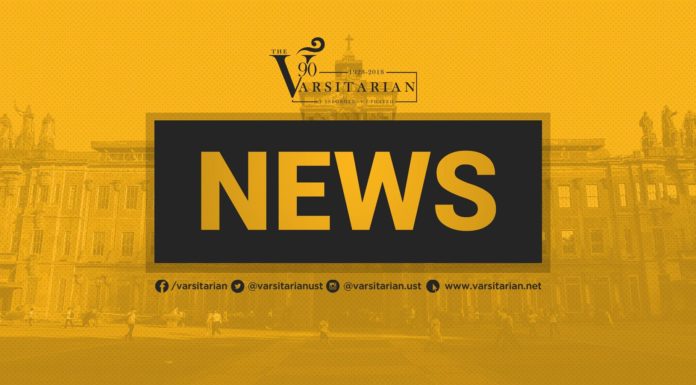
Driver Mang Nelson was in bad shape.
His heart was failing him, his arteries clogged. He needed what was called in medical parlance as “coronary artery bypass graft,” a highly complicated procedure that could cost him around P500,000.
Others in his situation would have surrendered to their fate—the amount was just too much. But fortunately for the 63-year-old native of Roxas City in Capiz, he wasn’t exactly helpless. His employer was a heart surgeon, one of the best in the country.
Dr. Rene Villanueva immediately scheduled his driver’s surgery at the Philippine Heart Center with no less than his two children—Irene and Paolo—assisting him and a team of surgeons at the operating table.
A few days later, Mang Nelson was ready to go, his heart almost good as new. He spent not a single centavo, thanks to this family of medical professionals he had worked for the past eight years.
“Even if I serve them in a lifetime,” he says in his native tongue, “I still cannot repay their kindness.”
The show of gratitude was enough for the Villanuevas, who have been used to extending random acts of kindness even to complete strangers.
Besides, Mang Nelson is already part of the family.
It’s probably the Thomasian in them that helped nurture this attitude of selflessness in the face of poor patients in need.
It’s in the blood
Medicine runs in the family. Rene, 56, recalls growing up in a medical environment since his father Arturo, a physician, converted the ground floor of their house in Roxas City into a mini-hospital. Among the children, only he pursued a similar career, enrolling at the UST medical school in the 1970s.
The same path later lured both of his children. Irene, 29, finished medicine magna cum laude also in UST in 2003 and placed fifth in the board exams the following year. Paolo, 26, got the same accolade at med school and is set to take the boards in August.
Their mother Susan, 56, is just as involved in medicine. She had been a long-time nurse at the UST hospital before moving to the health department of the Social Security System.
So how’s it like to be in a family of physicians?
A Villanueva idiosyncrasy surfaces whenever a family member gets sick. Chances are, that person will be “over-treated.”
Rene recalls the time when Paolo was suffering from stomachache. He had fever, too, and the symptoms were enough to convince his parents that he needed hospitalization. They had him go through a battery of tests: ultrasound, blood, x-ray, and stool.
Fortunately, the results came out negative. The boy had only a simple case of gastroenteritis.
His parents didn’t regret the decision to rush him to the hospital. They just couldn’t take chances with their children.
They would rather overdo treatment than be complacent and jeopardize their children’s health.
“As a doctor with a deeper orientation, I viewed the situation in the worst scenario,” Rene tells the Varsitarian. “That simple stomachache could already be appendicitis.”
‘Dr. Mom’
What happens when doctors get sick?
For all her family’s training in medicine, Susan is the acknowledged “doctor” to her husband and children. If the Villanueva household were a hospital, says Irene, her mother would be the medical director.
It’s probably her mother’s instinct that tells her what needs to be done to an ailing loved one.
“When they get sick, I give them medicines,” she says. “But I trust them to exercise their own judgment as doctors.”
Thank you
Rene owes much of his medical attitude and perspectives to his late father.
He initially wanted to be an engineer, but an inspirational speech his father delivered during his high school graduation changed his mind forever.
“He told us to focus on the direction of our career path,” the son says. “It made me realize that what I really wanted was to pursue medicine.”
Rene’s resolve was galvanized by the sight of patients—hundreds of them—who lined up daily at his father’s house cum hospital in Roxas. Many of them got free medical assistance, often extending only a basket of fruits or a chicken as a token of gratitude.
Later in his career, Rene would realize that a heartfelt “thank you” could be even more gratifying than monetary payment for the most expensive medical procedure.
“Whether you’re compensated or not, at the end of the day, you’re still happy,” he says.
Rene’s view of patient care has inspired his children the same way his father Arturo had inspired him more than 30 years ago.
“My dad doesn’t only see the patient’s diseases but the persons themselves,” says Paolo. “That’s what I admire in him.”
Career template
Rene naturally laid out his children’s “career template,” if ever there was one. Like him, both Irene and Paolo took up Biology as a pre-med course in UST and later enrolled at the same institution’s med school.
Irene describes med school as a “cocoon where nothing exists but yourself, your professors, and your books.”
Paolo says he also needed some adjustment at UST. From the confines of the all-boys Ateneo high school, he suddenly found himself in a new school, a melting pot of students from various demographics.
“It was definitely a big change going from Katipunan to España,” he says. “My environment totally changed now with girls around.”
But he slowly learned how to adjust to his new surroundings. He learned to mingle, eat at “hole-in-the-wall” canteens, and save money. “I realized that I have to do things which I usually didn’t do before,” he says.
Being the youngest in a family of doctors has its challenges for Paolo. Having witnessed his father’s and older sister’s accomplishments as doctors, he knows the family’s high expectations, especially with the board exams just two months away.
“I just don’t let (the expectations) get to my head,” he says. “I just let God do His will for me.”















